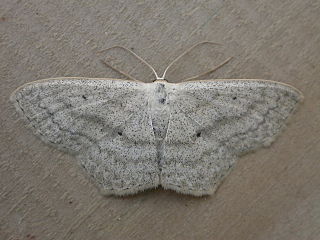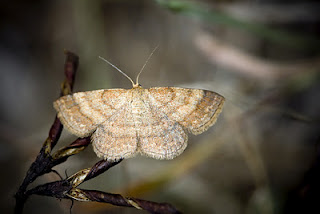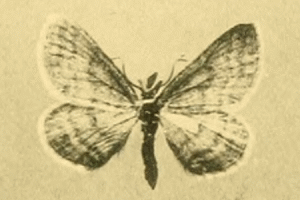| Scopula rhodocraspeda | |
|---|---|
| Scientific classification | |
| Kingdom: | Animalia |
| Phylum: | Arthropoda |
| Class: | Insecta |
| Order: | Lepidoptera |
| Family: | Geometridae |
| Genus: | Scopula |
| Species: | S. rhodocraspeda |
| Binomial name | |
| Scopula rhodocraspeda | |
Scopula rhodocraspeda is a moth of the family Geometridae. It is found in Madagascar. [2]

Moths comprise a group of insects related to butterflies, belonging to the order Lepidoptera. Most lepidopterans are moths, and there are thought to be approximately 160,000 species of moth, many of which have yet to be described. Most species of moth are nocturnal, but there are also crepuscular and diurnal species.

Madagascar, officially the Republic of Madagascar, and previously known as the Malagasy Republic, is an island country in the Indian Ocean, approximately 400 kilometres off the coast of East Africa. The nation comprises the island of Madagascar and numerous smaller peripheral islands. Following the prehistoric breakup of the supercontinent Gondwana, Madagascar split from the Indian subcontinent around 88 million years ago, allowing native plants and animals to evolve in relative isolation. Consequently, Madagascar is a biodiversity hotspot; over 90% of its wildlife is found nowhere else on Earth. The island's diverse ecosystems and unique wildlife are threatened by the encroachment of the rapidly growing human population and other environmental threats.
This species is mustard-yellow to apricot-yellow with the costal edge of the forewing rosy, also the fringes. Possibly this is a colour-form of Scopula bistrigata (Pagenstecher). [3]
Scopula bistrigata is a moth of the family Geometridae. It was described by Pagenstecher in 1907. It is found on Madagascar and the Comoros.









